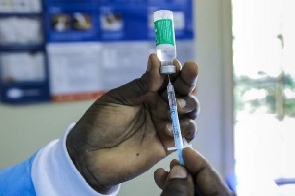With government expecting US$2 billion in financing for public infrastructure from the Chinese government – the first tranche of US$500 million being expected by government officials during the first half of 2019 – the Institute for Fiscal Studies (IFS) has advised that for the purpose of effective management of the risks associated with the projects to be undertaken, the arrangement should be brought under the Ghana Infrastructure Investment Fund (GIIF).
This is meant to ensure maximal efficiency and the avoidance of waste in the utilization of the impending financing, since the GIIF is mandated to raise funds on commercial terms for such projects and ensure their utilization in a manner that ensures Ghana meets its obligations to the financiers.
In addressing the country’s huge public infrastructure deficit, which is currently estimated at about US$30 billion; government has reached a barter agreement with Sinohydro Group Limited of China, to provide US$2 billion worth of infrastructure in exchange for access to part of Ghana’s extensive bauxite deposits in the Eastern Region.
At the IFS 2019 Pre-Budget Press Briefing, the Executive Director for IFS, Professor Newman Kusi said, “If there the need for us to raise money and government has being able to secure this fund for infrastructure; should this not be handed over to the GIIF, an organization setup specifically for that. Why should government run this parallel with the GIIF, when we have people there and we are paying them and we have money that can be used as security?”
GIIF is a sovereign investment fund established by statute to lead, promote, facilitate, fund, and backstop the development of and investment in, infrastructure.
The use of GIIF would also help ensure local content participation in the infrastructure development programme.
However, government officials point out that under the terms of the agreement with China, GIIF cannot have any significant role because SinoHydro itself has been put forward by China to provide the infrastructure and so the financing arrangement is outside of Ghana’s ambit. This is standard procedure in the utilization of infrastructural financing from China, even when provided on fully commercial terms; it will be recalled that the US$850 million financing from the Chinese Development Bank for the construction of gas pipelines to evacuate gas from Ghana’s offshore oil and gas fields and the Atuabo gas processing plant itself, was given to a Chinese firm, Sinopec, to execute the contract.
But Ghanaian business enterprises can look forward to sub-contractor works, supply contracts and other activities along the value chain for infrastructural development. Indeed, in view of the large amount of financing involved in the bauxite barter arrangement, Ghanaian businesses can expect to earn hundreds of millions of US dollars in contracts from Sinohydro, even if that company opts to use fellow Chinese firms extensively.
In the mid-year budget review, the Finance Minister noted that, to bridge the infrastructure gap, government will use a new model of financing that focuses on leveraging on the country’s natural resources. Through this financial arrangement, government expects to pursue its infrastructure agenda through 2019 to 2020 without increasing the country’s deficit.
Long-term industrial strategy
The Institute advised that government through the national development planning commission (NDPC), should prepare an implementable long-term national industrial strategy.
This is to ensure that there is a genuine transformation of the economy through industrialization, so as to achieve sustainable growth, generate high quality jobs and significantly reduce unemployment.
It recommended the scraping of the current system whereby each government is permitted and required to produce and implement a new development agenda, reflecting a partisan view and manifestoes.
Business News of Friday, 9 November 2018
Source: goldstreetbusiness.com
IFS calls for local participation in US$2bn China deal
Entertainment












